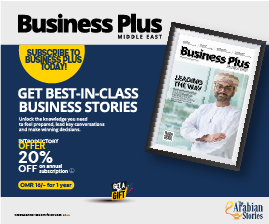In modern geopolitics, nations have evolved into more than mere geographic entities; they are now powerful brands competing for global attention and influence. Embracing this paradigm shift, Saudi Arabia has strategically positioned itself on the world stage through transformative initiatives and groundbreaking events.
Winning the right to host the World Expo 2030 is a bold testament to the kingdom’s ascendance on the global front. The esteemed event, projected to attract millions of visitors, offers Saudi Arabia a unique platform to showcase its technological advancements, cultural richness, and unwavering commitment to sustainability.
Coupled with forthcoming events like the 2029 Asian Winter Games and the 2034 World Cup, the kingdom solidifies its reputation as a premier destination for sports and entertainment enthusiasts worldwide.
Winning the right to host these global events is integral to a comprehensive national branding strategy. At its core, nation branding involves meticulously shaping and managing a country’s image and reputation, crafting a distinct identity that resonates with diverse audiences. Saudi Arabia effectively communicates its values, traditions, and limitless potential to the global community through these high-profile events.
Nation branding extends beyond external perceptions; it cultivates a sense of national pride and unity. A populace unified behind its national brand becomes a formidable force of ambassadors, driving the nation’s overall progress and development.
In recent years, Saudi Arabia has tried to understand its unique identity to shape its national brand effectively. By answering questions like ‘What defines the essence of the Saudi Arabian spirit?’ and ‘What positive associations are linked to the kingdom?’ Saudi Arabia has constructed a cohesive brand narrative aligned with its aspirations and vision for the future.
Measuring the efficacy of national branding efforts is paramount. Leveraging tools such as the Anholt-Ipsos Nation Brand Index and the FutureBrand Country Brand Index provide invaluable insights into global perceptions. Benchmarking against other nations allows Saudi Arabia to identify areas for improvement and refine its brand strategy accordingly.
In this strategic pursuit, Saudi Arabia can draw inspiration from renowned global brands with similar characteristics. Whether it’s the fusion of tradition and modernity reminiscent of “Apple,” the opulence associated with “Rolex” or “Mercedes-Benz,” or the cultural richness embodied by brands like “Louis Vuitton” or “Chanel,” these associations offer valuable insights into the diverse facets of the kingdom’s identity.
As Saudi Arabia continues to secure major global events and invest in brand equity promotions, education, and training for the events industry, it actively crafts a compelling narrative aligned with its future vision. The journey of nation branding is an ongoing endeavour, demanding strategic initiatives to fortify the kingdom’s global position and perception. Through these endeavours, Saudi Arabia is meticulously building a brand that reflects its rich heritage, embraces innovation, and embodies the aspirations of its people.
In recent years, Saudi Arabia has committed approximately $7 trillion to its ambitious “Vision 2030” initiative, which aims to diversify its oil-reliant economy and integrate sports and entertainment into its cultural fabric. Notable transformations include the reopening of cinemas, the lifting of the ban on women driving, advancements in gender equality, and the welcoming of tourists.
These initiatives underscore Saudi Arabia’s commitment to progress and open a platform for dialogue that some say is excellent PR. In contrast, others argue that it is nothing but a story of evolution and change.




